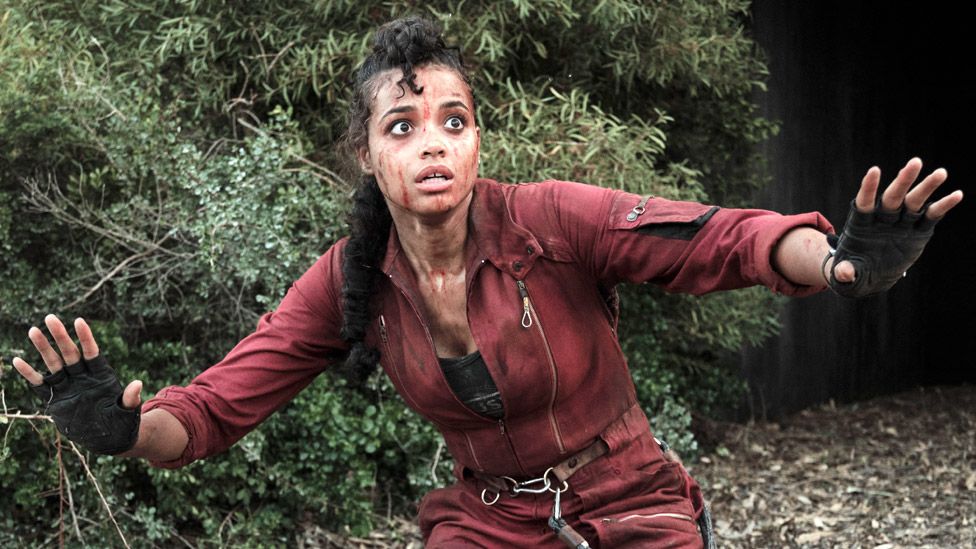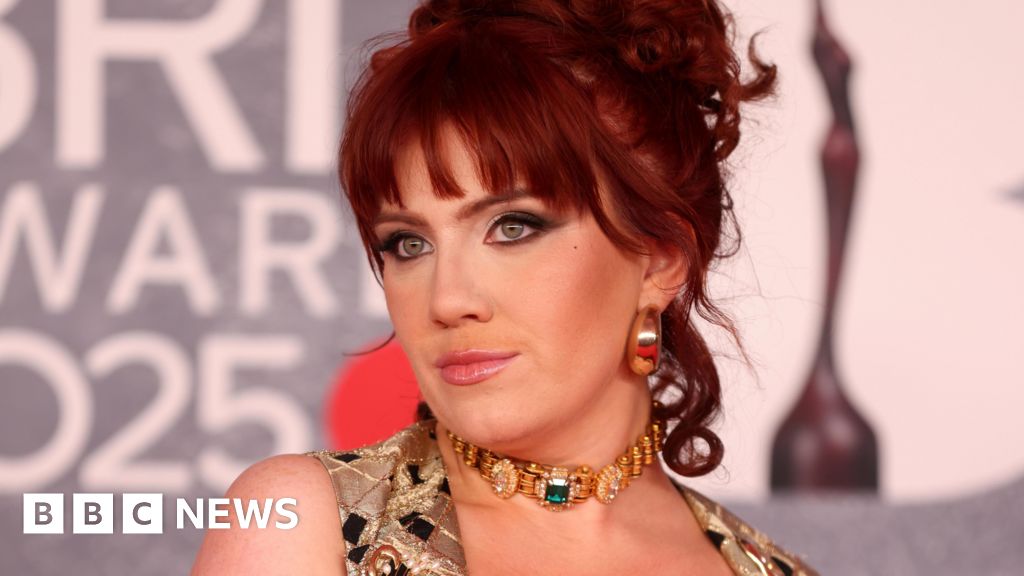ARTICLE AD BOX
By Daniel Rosney
Entertainment reporter
 Image source, MARCOS CRUZ/NETFLIX
Image source, MARCOS CRUZ/NETFLIX
The new adaptation of Resident Evil is currently Netflix's most popular series
Subscribing to a streaming service can be a bit like ordering a take-away when you don't know what you want to eat - paying the money and hoping what arrives is to your taste.
In recent months, fewer people have become willing to take their chances on the streaming menu, with Netflix expected to announce its biggest ever fall in subscribers on Tuesday.
Two million are projected to have left the streaming giant between April and July. As some find the shows less appetising and have their household budgets squeezed, and with Netflix's Covid boom over and rivals trying to cook up a better offering, it seems our streaming tastes are changing.
One of Netflix's lost subscribers is James Leiper, 26, from Huddersfield. "I bought a house last year, so I thought I needed to take control of what I was spending, and all the monthly subscriptions added up," he says.
"At one point, I had four streaming services and it was a lot of money each month for things I barely used.
"Netflix was the first to go for me because there was only a handful of things on it I was watching."
Image source, Netflix
Image caption,Season four of Stranger Things has been watched for more than a billion hours, Netflix says
Mr Leiper says he is now more mindful of what he spends every month because of things like his electricity and gas bills going up.
"Five or six years ago, I'd watch everything on Netflix, and now there's not so much and I'm not tempted by anything on there," he explains.
An increasing number of British households feel the same way about streaming, with 700,000 fewer having at least one subscription compared with the start of the year, according to research firm Kantar.
Younger viewers have been the most likely to unsubscribe, with more under-24s turning to alternatives like BBC iPlayer or ITV Hub.
Netflix does remain the world's most popular streaming service, but Tuesday's figures are likely to show its biggest fall in subscriber numbers to date, three months after its first ever drop sent its share price plummeting.
Squid Game, Stranger Things and Bridgerton have given it huge hits, but the company's recent strategy of churning out content has backfired, according to TV critic Hayley Campbell, co-host of the BBC Sounds Must Watch podcast.
"I think Netflix is losing numbers because it keeps pumping out endless shows without stopping to check if they're good," she explains.
Image source, Netflix
Image caption,Heartstopper - a teen LGBTQ+ drama - has been renewed for a second and third series
She says Netflix's "ratio of rubbish to brilliant is way off" - but thinks it's now trying harder with shows like Heartstopper.
"Apple TV+ is the most interesting place for TV shows at the moment because it seems to be actually taking risks and investing money in making things like Shining Girls or Severance," she says.
Amazon Prime attracted more new subscriptions in the UK than its rivals in the last three months, according to Kantar.
Campbell adds: "The most interesting things on Amazon Prime right now aren't made by Amazon, they come from places like HBO."
Image source, Matthew Rose
Image caption,Matthew Rose says he watches a lot less TV than he used to, largely down to content not being good enough
Another viewer, Matthew Rose, 26, from Devon, agrees: "Netflix has great shows like Stranger Things and Squid Game but there's a lot of programmes that aren't high quality.
"The brand doesn't seem premium any more, and I only watch the big hitters because everyone's discussing them."
He only pays for Disney+, cancelling other streaming services like Spotify last year, and relying on free trials for new customers.
Image source, Netflix
Image caption,Squid Game is the most popular series in Netflix's history
Mr Rose says he accesses most of his content on YouTube "because it's shorter and it's like a long-form TikTok" with "really interesting short documentaries", which are free.
"I basically only have Disney Plus because I love Star Wars," he says.
For Netflix, he piggybacks on his sister's account. "If she kicked me out then I wouldn't subscribe myself."
The key point about Netflix's share price is that its decline looks structural, rather than a blip. That is because of both the scale and the underlying trends, and the range of factors causing this drop are troubling investors and Netflix's leadership.
Surging global inflation creates a cost-of-living crisis. Ultimately, great television and movies are a (very) nice-to-have, not an essential like food, water or clothing.
Commercial rivals are exceptionally strong: from Disney to Paramount and Amazon to Apple, the competition is brutal. The likes have Disney have realised that, rather than let Netflix monetise their work, they should do it themselves. So Netflix loses content, as rich rivals grow their libraries.
A pandemic bump in subscribers, when millions of rich people were staying at home, flattered the figures. The pandemic also halted many productions, choking the supply of fresh shows.
Sharing passwords is one thing Netflix is hoping to crack down on - believing that is stifling growth.
Even the UK Culture Secretary Nadine Dorries does it, recently admitting in Parliament that there were "four other people in different parts of the country" using her account.
Streaming firms are also facing the growing phenomenon of flipping subscriptions - people cancelling one and re-starting another depending on which service has something they want to watch at the time.
One thing Netflix hopes will tempt people to stay is a cheaper plan that will carry adverts - although the details and pricing have not been revealed.
And Tuesday's expected two million fall in subscriber numbers is still relatively small given that Netflix added 18 million subscribers around the world in 2021, which took its total it to almost 222 million.
Amazon Prime Video had 175 million viewers in 2021, and Disney Plus' base topped 118 million.
Despite those huge numbers, traditional TV viewing usually still beats streaming in the UK ratings. At the peak of Squid Game's popularity last year, Barb - the TV ratings agency - found that broadcast programmes like the BBC's Strictly Come Dancing and ITV's Coronation Street attracted more eyeballs.
Image source, Lucy Stirman
Image caption,Lucy Stirman says she watches more Coronation Street and Love Island now than anything on streaming services
"The feel of watching TV with lots of people watching at the same time makes it less lonely," explains one viewer, Lucy Stirman from Stockton-on-Tees.
"Soaps are drama but easy to watch and it's not a big deal if you dip in and out.
"With Netflix and Amazon Prime, it's more when you know a good movie or series is going to be added and you hear people talking about them."
The 32-year-old has not given up her Netflix account, though, explaining that the children's section is played every day for her daughter, who is almost one.
Even if some younger viewers are cancelling, another generation is growing up with streaming.

 2 years ago
70
2 years ago
70








 English (US) ·
English (US) ·